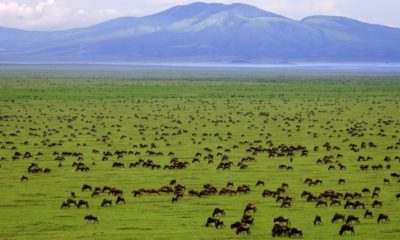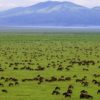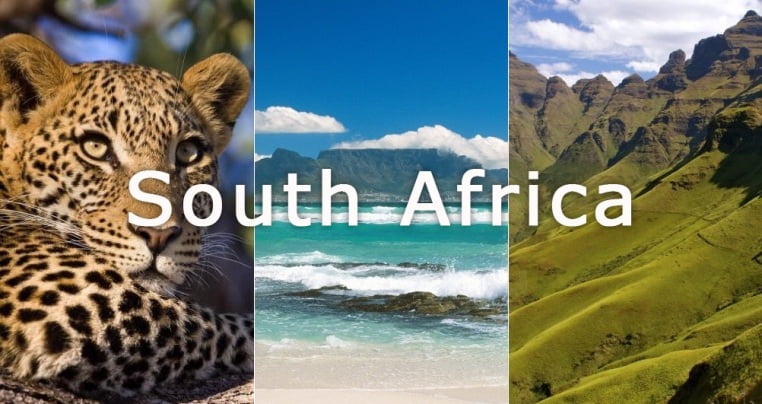Africa
Backpacking Morocco Need To Know
Basics
Languages:
Capital:
Currency:
| Dial Code:
International Access Code:
Emergency Services Number:
Time Difference:
|
Recommended For Further Information On Morocco
Lonely Planet Morocco
The below is a very basic guide. If you are heading to Morocco I highly recommend picking up a copy of Lonely Planet’s; Morocco. It provides the most relevant, up-to-date advice on what to see, do and skip, plus where to eat and sleep…

Entry
Citizens of most countries (including all EU countries, The US, Canada, Australia and New Zealand) do not need a visa for stays of up to 3 months.
When entering the country, make sure your passport is stamped. Some tourists have experienced difficulties leaving the country because their passport bears no entry stamp.
Your passport should be valid for the proposed duration of your stay in Morocco. No additional period of validity beyond this is required.
Anyone travelling with prescription medication should make sure they have a copy of the doctor’s prescription with them and that the quantity of medication carried is within the limits of the prescription.
The border between Algeria and Morocco is closed.
For official information visit your home government travel bureau.
Getting Around
More detail is to come in this section, but you can read about general advice regarding Getting Around When You Get There
Accommodation
Morocco has hostels in major cities and tourist areas from around 70-140 MAD (£5-10) per night. Hotels are also relatively cheap, but vary in quality.
Read more about Accommodation When You Get There and Living in Hostels
Food And Health
Food hygiene and safety is improving, but isn’t up to Western standards. Use your instincts; if the place looks dirty, don’t eat there; if your food isn’t piping hot, don’t eat it.
Water is not safe to drink, so stick to bottled or boil.
Make sure you have adequate travel health insurance and accessible funds to cover the cost of any medical treatment abroad and repatriation.
Always contact your GP around 8 weeks before your trip to check whether you need any vaccinations or other preventive measures. Visit here for Recommended Vaccinations and read here for more about Travelling Health In General
Weather & Time To Go
Morocco has a pleasant subtropical climate, cooled by breezes off the Atlantic and Mediterranean and there is never a bad time to visit the major cities and tourist destinations. The interior temperatures are more extreme, very hot in summer and freezing at night.
Communications
Internet is generally slow, but accessible in most towns, hotels and hostels. International calling cards are cheaply available in large towns.
Dangers And Considerations
Violent crime is not a major problem in Morocco, but there are occasional incidents in the major cities and along beaches. Avoid areas that you don’t know especially after dark.
Petty crime is more common. Be vigilant when using ATMs as crime and aggressive begging can occur. Credit card fraud and scams like substituting inferior goods for those that were actually bought are common. Intimidation is sometimes used to force customers to buy goods.
Protests are common, you should avoid all public gatherings and mass demonstrations, as they can sometimes turn violent.
Homosexuality is a criminal offence in Morocco.
The penalties for possession of even small amounts of drugs are severe – up to 10 years’ in prison.
Dangers constantly change. Always check with your foreign office (British Foreign Office webpage) or travel advice bureau for the latest information regarding your destinations safety.
Read more about Safety And Security here
Respecting Culture
Morocco is an Islamic country. You should respect local traditions, customs, laws and religions at all times and be aware of your actions to ensure they don’t offend, especially during the holy month of Ramadan or if you intend to visit religious areas. It is against the law to carry bibles in Arabic, and distribute any non-Muslim or evangelical literature.
Sexual relations outside marriage are punishable by law. It’s not uncommon for hotels to ask couples to show evidence of marriage at the time of check-in, and if such evidence is not available, to insist on separate rooms.
Women, especially when travelling alone, may attract attention. To minimise hassle, you should dress modestly and avoid wearing clothes that could be regarded as provocative.
Left hands are considered unclean, so avoid eating with and shaking hands with your left.
Elders are shown great respect in Morocco.







